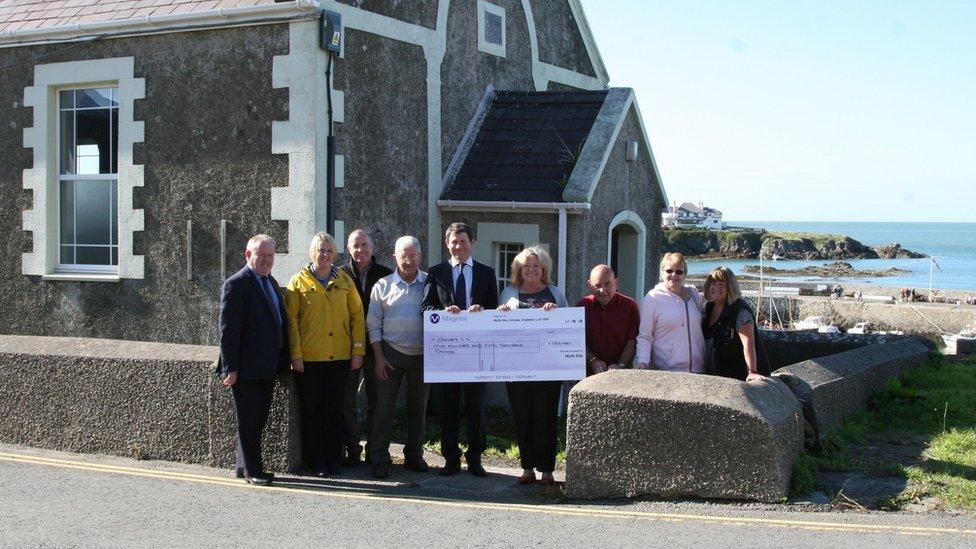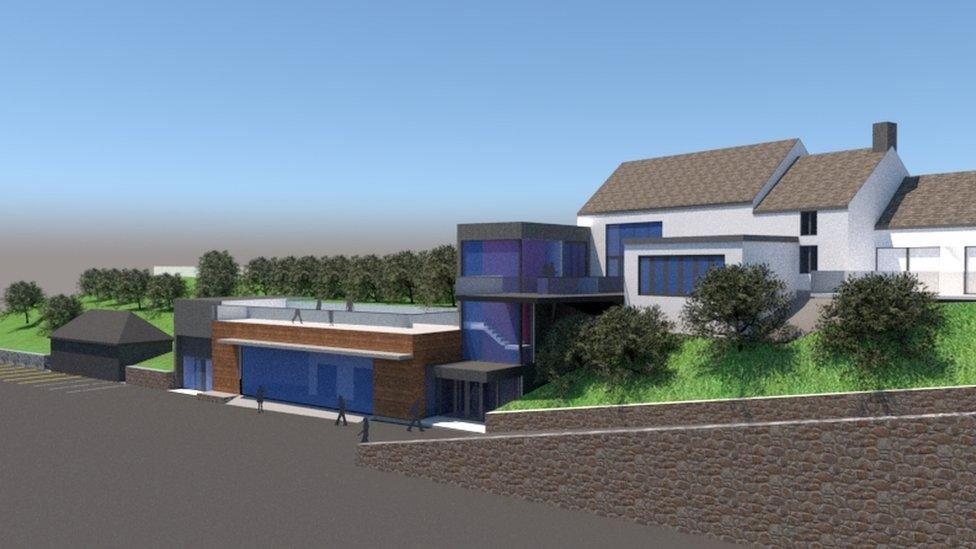Cemaes chapel £2m transformation plan approved
- Published

The project has been given £150,000 from the Nuclear Decommissioning Authority's community fund
A £2m transformation of a chapel into a year-round tourist attraction and focal point for Wales' most northerly village has been given the go-ahead.
Local campaigners in Cemaes Bay, Anglesey, came together to save the former Bethlehem chapel from potential property development.
Their plans include a restaurant, cinema, museum, holiday lets and a permanent home for a historic lifeboat.
One of the team said they were creating a "new jewel in Anglesey's crown".
Anglesey council planning officers granted approval to the project as no councillors had raised any objections.
Much of the chapel, which was built in 1856, will be retained but a new single-storey building on the slope below will house the village's historic lifeboat Charles Henry Ashley between September and May and include a museum space.
A total of 28 jobs are predicted to be created in a restaurant, two shops and holiday lets, according to the Local Democracy Reporting Service.

The existing chapel will be extended with new buildings to include a home for a historic lifeboat
Michelle Humphreys, chair of the Cemaes Community Interest Company which is behind the scheme, said they were delighted to win approval for an "ambitious, once-in-a-lifetime opportunity to create a new jewel in Anglesey's crown" for the benefit of residents and visitors alike.
She thanked local people for sharing their thoughts to "help shape the decisions for this grass roots, community-led project".
A community skills development fund will also be created from 50% of the enterprise's profits.
The team said it planned to offer the restaurant and shops on leases and hoped that together with the revenue generated from the holiday lets the proceeds would cover operating and maintenance costs.
The project has been promised £150,000 of grant aid from the Nuclear Decommissioning Authority's community fund, designed to support communities affected by the closure of ageing nuclear power stations such as the nearby Wylfa plant.
- Published5 June 2018

- Published28 June 2017

- Published17 July 2014

- Published6 December 2013
